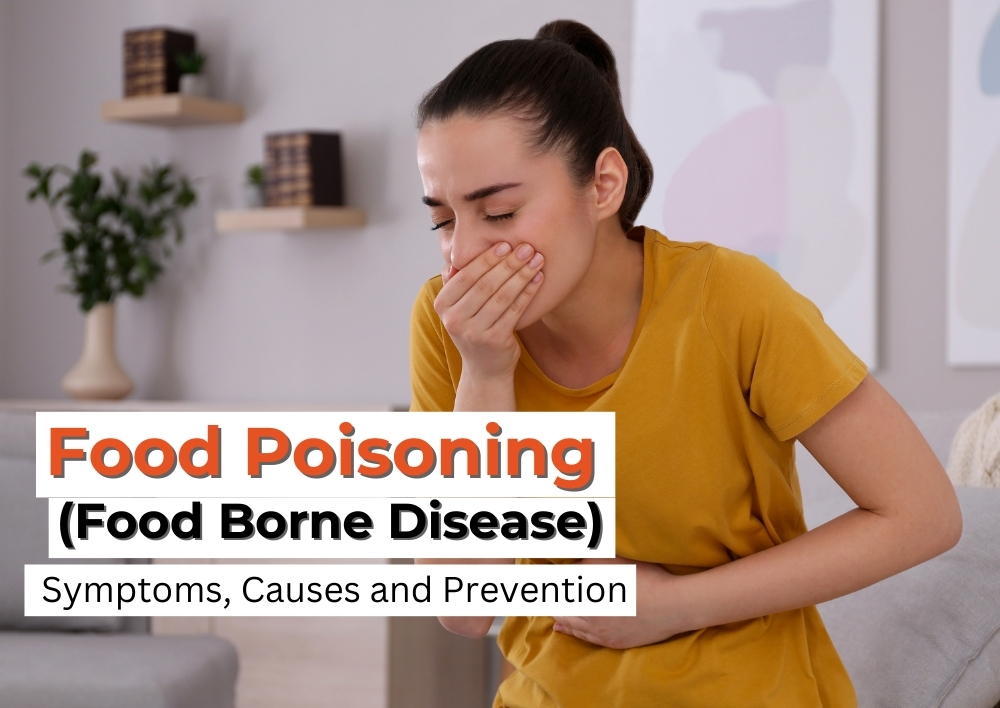ABCDou Insights
Exploring the world of news, trends, and information.
Belly Betrayal: The Sneaky Side of Food Poisoning
Uncover the hidden dangers of food poisoning and learn how to protect your gut from betrayal. Your stomach will thank you!
Understanding the Hidden Dangers of Food Poisoning: What You Need to Know
Food poisoning is a significant health concern that affects millions of people every year. It can occur after consuming contaminated food or beverages, often without any immediate warning signs. Understanding the hidden dangers of food poisoning is crucial, as the symptoms can range from mild discomfort to severe illness, and in some cases, it can even be life-threatening. Common culprits include bacteria like Salmonella and E. coli, as well as viruses such as norovirus. Awareness of how these pathogens enter our food supply is vital for prevention.
In addition to acute symptoms like nausea, vomiting, and diarrhea, food poisoning can have long-lasting effects on one's health. Some individuals may experience complications such as kidney failure or chronic digestive issues, which can persist long after the initial incident. It's essential to recognize the risk factors involved, including improper food handling, inadequate cooking, and cross-contamination. By educating yourself about food safety practices, you can significantly reduce your risk of falling victim to this hidden danger.

Top 10 Foods That Are Commonly Associated with Food Poisoning
Food poisoning can be a serious health risk, often linked to the consumption of contaminated food. Understanding which foods are commonly associated with food poisoning can help you make safer dietary choices. Here are the top 10 foods you should be cautious about:
- Raw or undercooked meat
- Shellfish
- Unpasteurized dairy
- Raw eggs
- Leafy greens
- Sprouts
- Cooked rice
- Prepared salads
- Ground meat
- Fruit juices
It is essential to handle these foods with care to minimize the risk of food poisoning. For instance, always cook meat to the recommended temperatures, wash leafy greens thoroughly, and avoid eating raw or undercooked eggs. Remember, the right storage practices are just as crucial in preventing contamination and ensuring food safety.
Is Your Fridge a Breeding Ground for Bacteria? Tips for Safe Food Storage
Your refrigerator may seem like a safe haven for food storage, but it can easily become a breeding ground for bacteria if not maintained properly. Bacteria thrive in temperatures above 40°F (4°C), so it's essential to keep your fridge at or below this temperature. Regularly check your fridge's temperature settings and invest in a thermometer for accuracy. Furthermore, old and spoiled food can contribute to bacterial growth. Make it a habit to clean out your fridge weekly, discarding items that are past their expiration dates or showing signs of spoilage.
To ensure safe food storage and minimize the risk of contamination, consider implementing the following tips:
- Store raw meats on the bottom shelf to prevent drips onto other foods.
- Use airtight containers to keep your leftovers fresh and avoid cross-contamination.
- Label and date your leftovers to keep track of their freshness.
- Keep your fridge organized – maintain a separate area for fruits and vegetables to prevent ethylene gas from spoiling other items.